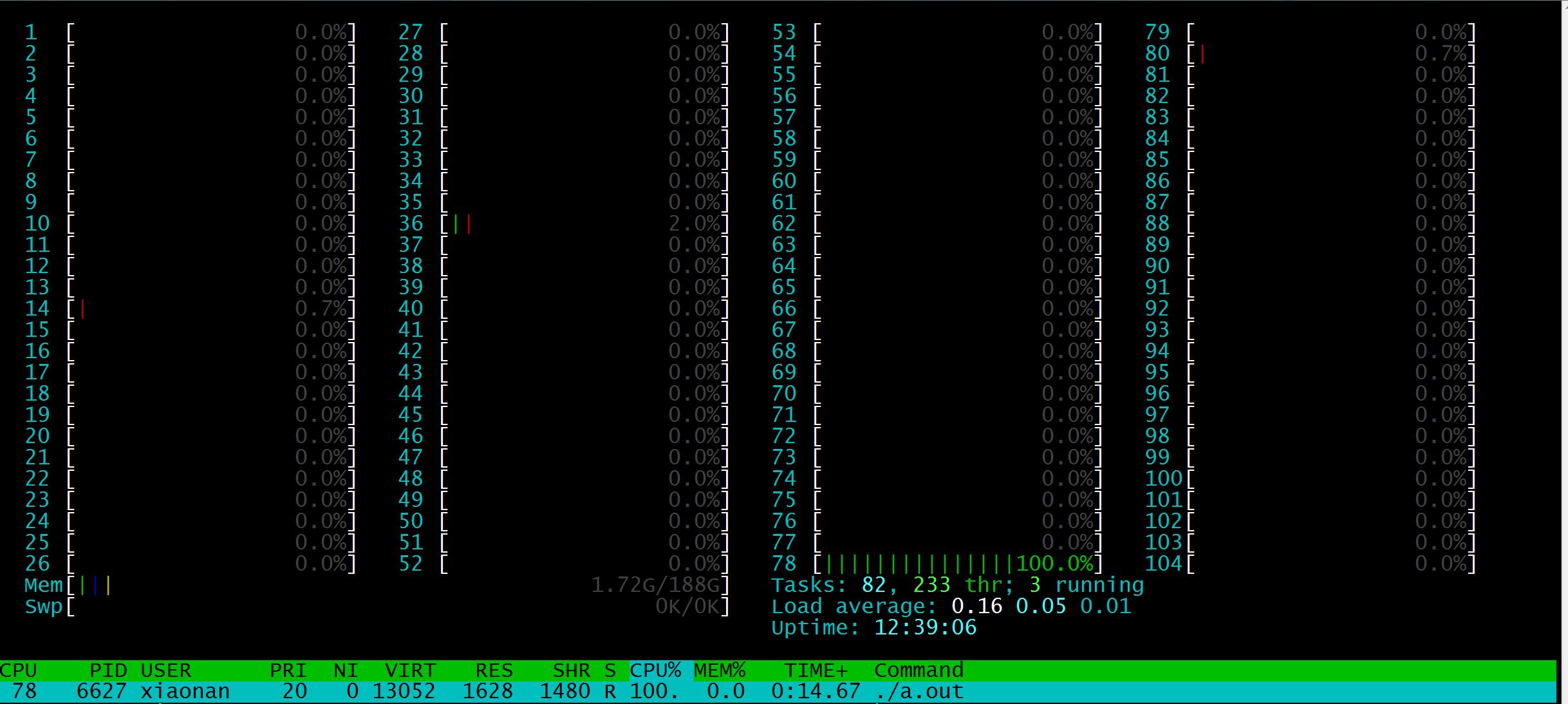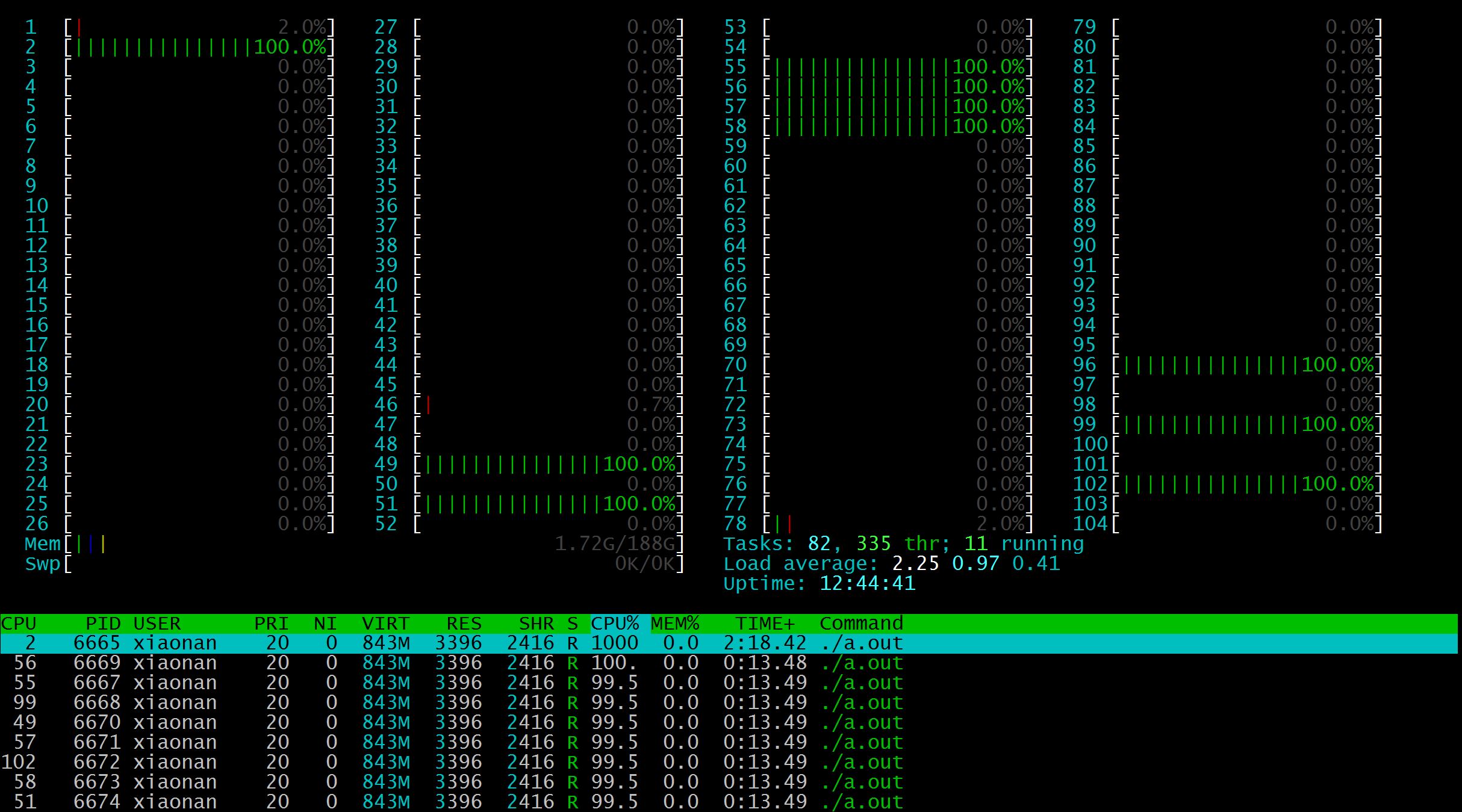Why concurrency programming?
The CPU has entered the multi-core era for a long time. Take the following server information as an example:
$ lscpu
Architecture: x86_64
CPU op-mode(s): 32-bit, 64-bit
Byte Order: Little Endian
CPU(s): 104
On-line CPU(s) list: 0-103
Thread(s) per core: 2
Core(s) per socket: 26
Socket(s): 2
NUMA node(s): 2
......
This box has 2 physical CPUs, and every physical CPU has 26 cores. Since every core has hyper-thread support, there are totally 104 logical CPUs.
When you run an application, the process will have only one main thread by default. See the following code:
void task(void)
{
// Do heavy work
return;
}
int main(void)
{
int i = 0;
for (i = 0; i < 10; i++)
{
task();
}
return 0;
}
Let's assume the task() function will take a long time, and the process will execute task 10 times. If there is only main thread, the actual CPU utilization is like this:
We can see there is only one CPU is in use. If the program can spawn another 9 threads (plus main thread, there are totally 10 threads), and every thread calls task() function, there will be 10 CPUs in use:
And the whole running time will be reduced significantly.
A caveat which we need pay attention to is if there is only 1 logical CPU, though the process contains multiple threads, they are in fact run in concurrency, not in parallelism. Because in any time, there is only 1 thread running. In this scenario, the context-switch of threads may be a big overhead, using traditional single-thread model may be a better choice.

